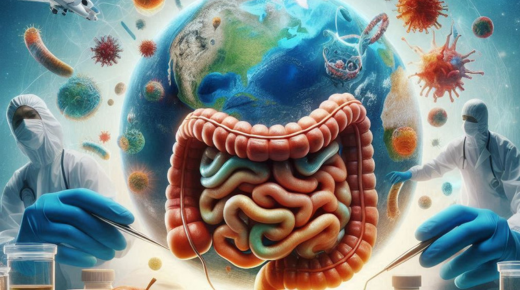Digestive disorders encompass a wide range of conditions affecting the gastrointestinal (GI) tract, which can significantly impact a person’s quality of life. Advances in medical research and technology have led to the development of innovative treatments and therapies that are revolutionizing the care for digestive disorders. This article explores these cutting-edge treatments, their benefits, and how they are transforming GI health.
Understanding Digestive Disorders
Common Digestive Disorders
Digestive disorders affect various parts of the GI tract, including the esophagus, stomach, intestines, liver, pancreas, and gallbladder. Common conditions include:
- Gastroesophageal Reflux Disease (GERD): Chronic acid reflux causing heartburn and other symptoms.
- Irritable Bowel Syndrome (IBS): A disorder characterized by abdominal pain, bloating, and changes in bowel habits.
- Inflammatory Bowel Disease (IBD): Includes Crohn’s disease and ulcerative colitis, which cause chronic inflammation of the GI tract.
- Celiac Disease: An autoimmune disorder where ingestion of gluten leads to damage in the small intestine.
- Liver Diseases: Conditions such as hepatitis, fatty liver disease, and cirrhosis.
- Pancreatic Disorders: Includes pancreatitis and pancreatic cancer.
- Gallbladder Diseases: Conditions such as gallstones and cholecystitis.
Impact on Quality of Life
Digestive disorders can cause a range of symptoms, including abdominal pain, bloating, diarrhea, constipation, nausea, and vomiting. These symptoms can affect daily activities, nutritional intake, and overall well-being.
Innovative Treatments for Digestive Disorders
Biologics and Targeted Therapies
Biologic therapies are advanced medications derived from living organisms that target specific components of the immune system. They are particularly effective in treating inflammatory and autoimmune digestive disorders.
Benefits
- Precision Targeting: Biologics specifically target molecules involved in the inflammatory process, reducing side effects compared to traditional immunosuppressive drugs.
- Effective Symptom Management: Biologics significantly reduce symptoms and improve quality of life in patients with conditions like IBD.
- Disease Modification: In some cases, biologics can alter the course of the disease, leading to longer-term remission.
Applications
- Anti-TNF Agents: Used in IBD to reduce inflammation. Examples include infliximab (Remicade) and adalimumab (Humira).
- Integrin Receptor Antagonists: Prevent immune cells from entering the GI tract. Examples include vedolizumab (Entyvio).
- Interleukin Inhibitors: Target specific interleukins involved in the inflammatory process. Examples include ustekinumab (Stelara).
Small Molecule Drugs
Small molecule drugs target specific intracellular pathways involved in the immune response and inflammation. These drugs offer a convenient oral treatment option.
Benefits
- Oral Administration: Small molecule drugs are taken orally, making them more convenient than injectable biologics.
- Targeted Action: These drugs precisely target intracellular pathways, reducing systemic side effects.
- Versatility: Effective across a range of digestive disorders.
Applications
- Janus Kinase (JAK) Inhibitors: Used in ulcerative colitis to reduce inflammation. Examples include tofacitinib (Xeljanz).
- Sphingosine 1-Phosphate Receptor Modulators: Used in conditions like Crohn’s disease. Examples include ozanimod (Zeposia).
Fecal Microbiota Transplantation (FMT)
FMT involves transferring stool from a healthy donor into the GI tract of a patient. This innovative treatment aims to restore a healthy balance of gut bacteria.
Benefits
- Restores Gut Microbiome: Helps re-establish a healthy gut microbiome, which can improve symptoms and overall gut health.
- Effective for C. difficile Infection: Highly effective in treating recurrent Clostridioides difficile (C. difficile) infection, which can cause severe diarrhea and colitis.
- Potential for Other Conditions: Research is ongoing to explore the efficacy of FMT in treating conditions like IBD, IBS, and metabolic disorders.
Endoscopic Procedures
Advances in endoscopic techniques have improved the diagnosis and treatment of various GI conditions. These minimally invasive procedures offer precise treatment with fewer risks and quicker recovery times compared to traditional surgery.
Applications
- Endoscopic Mucosal Resection (EMR): Used to remove precancerous and early-stage cancer lesions from the GI tract.
- Endoscopic Submucosal Dissection (ESD): Allows for the removal of larger and deeper lesions within the GI tract.
- Endoscopic Ultrasound (EUS): Combines endoscopy and ultrasound to obtain detailed images and perform biopsies of the digestive tract and surrounding tissues.
- Capsule Endoscopy: Involves swallowing a small, pill-sized camera that takes pictures of the small intestine, helping diagnose conditions like Crohn’s disease and small bowel tumors.
Nutritional Therapy
Nutritional therapy involves using diet and nutrition to support health and manage digestive disorders. Personalized dietary plans and nutritional supplements can help alleviate symptoms and improve overall gut health.
Benefits
- Symptom Management: Tailored diets can help manage symptoms of conditions like IBS, IBD, and celiac disease.
- Nutrient Absorption: Ensures adequate nutrient intake and absorption, which can be compromised in digestive disorders.
- Overall Health: Promotes overall health and well-being through balanced nutrition.
Applications
- Elimination Diets: Identify and eliminate trigger foods that cause symptoms.
- Low FODMAP Diet: Reduces intake of fermentable carbohydrates to alleviate symptoms of IBS.
- Gluten-Free Diet: Essential for managing celiac disease.
Probiotics and Prebiotics
Probiotics are live beneficial bacteria, and prebiotics are non-digestible fibers that feed these bacteria. Both play a crucial role in maintaining a healthy gut microbiome.
Benefits
- Gut Health: Promote a healthy balance of gut bacteria, which can improve digestive health and immune function.
- Symptom Relief: Help alleviate symptoms of IBS, IBD, and other digestive disorders.
- Preventive Care: Support overall health and prevent the development of digestive issues.
Advanced Surgical Techniques
For severe digestive disorders that do not respond to medical therapy, advanced surgical techniques offer effective treatment options with improved outcomes.
Applications
- Laparoscopic Surgery: Minimally invasive surgery with smaller incisions, leading to quicker recovery and less postoperative pain.
- Robotic Surgery: Provides enhanced precision and control, useful for complex GI surgeries.
- Bariatric Surgery: Surgical intervention for obesity, which can also improve related conditions like GERD and fatty liver disease.
Comprehensive Care Approaches
Integrative Medicine
Combining conventional treatments with complementary therapies provides a holistic approach to managing digestive disorders.
Therapies
- Acupuncture: Can help reduce pain and inflammation.
- Massage Therapy: Alleviates muscle tension and promotes relaxation.
- Herbal Medicine: Certain herbs can support digestive health and reduce inflammation.
Lifestyle Modifications
Lifestyle changes play a crucial role in managing digestive disorders. Integrating these modifications can help alleviate symptoms and improve overall well-being.
Recommendations
- Diet and Nutrition: Follow personalized dietary plans to manage symptoms and improve gut health.
- Regular Exercise: Physical activity helps maintain mobility, reduce stress, and improve overall health.
- Stress Management: Techniques like mindfulness, meditation, and yoga can help manage stress, which is often a trigger for digestive disorders.
Patient Education and Support
Educating patients about their condition and providing ongoing support is essential for effective management.
Strategies
- Education: Provide information on the condition, treatment options, and lifestyle modifications.
- Support Groups: Offer support groups for patients to share experiences and receive emotional support.
- Follow-Up Care: Regular follow-up appointments to monitor progress and adjust treatment plans as needed.
Innovative treatments for digestive disorders are revolutionizing the care for GI health, offering new hope and improved outcomes for patients. From biologics and small molecule drugs to advanced endoscopic procedures and nutritional therapy, these cutting-edge treatments target the underlying mechanisms of digestive disorders, improving symptoms and quality of life. Integrating these treatments with lifestyle modifications and complementary therapies provides a comprehensive approach to managing and mitigating the symptoms of digestive disorders. As research continues, the future holds promise for even more effective and personalized treatments, helping patients achieve optimal GI health and overall well-being.



